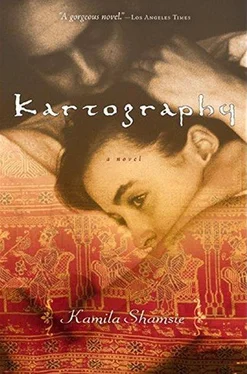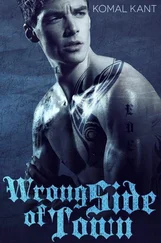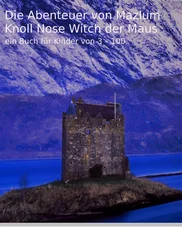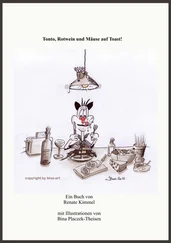Or, Maheen, is it possible to reclaim a name?
It is a name for which I have great affection, great regard. But what must be done to restore it to what it could have stood for? Perhaps our children will answer that question one day, if we give them the tools — the information — they need for that task.
We act as though history can be erased. Of course we want to believe that — the cost of remembering may break our wilted spirits. But if we believe in erasure we tell ourselves it is possible to have acts without consequences. The finger squeezing the trigger becomes a thing apart from the bullet that speeds across the sands, which becomes a thing apart from the child looking down at his blood pumping out of his heart. And that child, that bullet, that finger, they become things way, way apart from our lives, here, in rooms where we look upon our own sleeping children.
I don’t know if I’ve made any sense, and now I’m blotting the ink with these meaningless tracks of tears.
I will — if you allow it, and I’ll take your silence as ayes — I will tell my daughter what I did — no, let me not phrase that in the past: I will tell my daughter what I have done — when she is old enough to grasp how unforgivable it was. When she is old enough to look within and around, and understand the canker. And this is the form my own canker will take: the fear, the fear always, that when I tell her she will turn away from me.
So here is my promise to you: I will help Yasmin bring up our daughter in such a way that she will have to look at me in horror when I finally tell her the truth of what I said.
There is nothing that gives me more joy these days than looking at you and knowing you are happy. My love always,
Zafar
. . .
When I arrived back in Karachi that summer, the summer of 1995, he was waiting for me at the airport. Waiting inside the terminal. Uncle Asif’s contacts again, no doubt.
I walked towards him, jet-lagged, the strap of my carry-on flight bag cutting into my shoulder. ‘I read the letter you wrote Aunty Maheen,’ I said.
‘I know. Did I sound like a self-righteous ass?’
‘Yes,’ I said, and then I quoted the last three paragraphs of the letter back to him.
When he put his arms around me, there was a hesitation on both our parts, but although I didn’t hug him back I didn’t feel the need to pull away either, and that, at least, was a start.
I had read all the papers on the Net, detailing showdowns, stalemates, body counts, analyses, but when I stepped out of the airport and headed home what struck me most was the vulnerability of cars. Glass on all sides, barring neither stares nor fists nor bullets. And was that man criminal, lunatic or immortal angel that he could stand on the pavement, smoking a cigarette, as though life’s greatest danger was falling ash?
Electricity failures and water shortages. Humidity that sheened my skin with sweat, seconds after I stepped out of the air-conditioned car. What water there was, was warm. Electricity repairmen needed police escorts to guard them from Karachiites living in dark and heat for days at a time. But what of those areas the police dared not go to for fear of being attacked themselves? To counter the electricity shortage, there was a ban on neon lights. Driving home from the Club at dinner time was like driving through a ghost town — darkness everywhere save for traffic lights, and who wanted to risk stopping at a red light in those days?
‘Aunty Maheen, have you heard from Karim?’
‘No, darling, just postcards. He’s teaching English in Mexico somewhere. Hasn’t got a phone, and, frankly, sweetheart, the way things are in Karachi, if I do speak to him I’ll do everything I can to dissuade him from entering those city limits.’
Rocket launchers and gunfire in Boat Basin. Sonia’s brother, Sohail, was there when it happened. He told us about the incredible illumination of the night sky when the rocket launchers exploded and how the sound of bullets at first resembled firecrackers. How often we’d stopped in that part of town over the years, after school and after parties, scrounging through one another’s purses and wallets for money to spend on meals at Chips and Mr Burger and Flamingo Chaat. How could the violence reach somewhere so familiar?
‘Why don’t you just stop reading the papers?’ Zia said to me on the phone from New York.
There were mornings when that was a tempting idea, but I found I could no longer say to the world, there’s nothing I can do to change this, so why think too hard about it? I still didn’t think there was anything I could do to change the situation, but now it felt like an abomination to pretend to live outside it.
I learnt about the cyclical nature of violence that summer. Since November when the army had pulled out of Karachi after failing to quell the ‘law and order situation’, law-enforcement had returned to the hands of the Rangers (I had once thought their name amusing, but there was no comedy to be found in the mention of them anymore) and their attempts to bring about security through ruthlessness was only breeding further terrorism. Extra-judicial killings every day. And there was a split in the MQM — the work of the intelligence agencies, so the rumour went, who saw (or thought they did) the efficiency of getting a group to break in two, each side turning bloodily on the other. But all the political analyses in the world couldn’t quite explain what was happening in Karachi — what can explain men on motorbikes spraying bullets everywhere, killing without regard for ethnicity or age or gender?
From Dawn newspaper:
June 23: Twenty-four people were killed and several others wounded in targeted attacks, sniping and gunbattles between rangers, police and armed youths on Friday, raising the month’s death toll to 204.
June 24: Twenty people were killed and many others wounded as widespread violence paralysed the city on Saturday. Two policemen, two MQM workers, two truck drivers, a PPP activist, and a police informer were among those who fell victim to the shooting spree.
June 25: At least 32 people lost their lives and many others were wounded as the city witnessed one of the worst days of violence on Sunday, marked by several rocket and grenade attacks.
June 26: 23 people were killed and many others wounded in the city, which remained in the grip of armed youths.
June 27: Fourteen people were killed on Tuesday as the city tried to limp back to normality
Every night, the Ghutnas gathered, and though there were interludes of revelry, in the end every evening’s conversation was ultimately unchanging. ‘Haalaat bohot kharab hain,’ they would say, again and again, as if English could not encompass just how bad the situation was; and then the conversation varied in its unvarying way from wondering if those accused of the killing were really guilty or just being set up; and how big a part did the ubiquitous Foreign Hand have in all of this; and could the city fall apart in such fashion without some government involvement; and were drug wars part of the reason for the violence; and which businesses had decided to start working through the strikes called by the politicians; and could the ‘talks’ actually achieve anything or were they merely occasions for both sides to pretend to talk peace while really recouping their losses and getting ready for the next round of firing; and could this city — my city, this ugly, polluted, overpopulated, heartbreaking place — retain its spirit after all this battering? And finally, inevitably, someone would say: It’s like 1971. Except that the army will decimate us before they allow Karachi to break away. And it always fell to my father to say. ‘No one wants civil war. Don’t say it’s like ’71. Don’t even think it.’
Читать дальше












